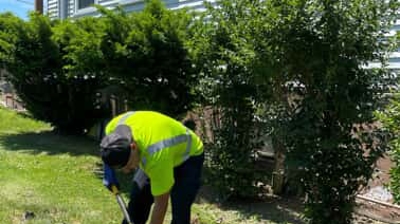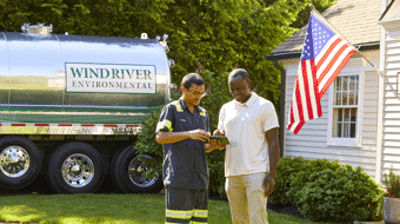Every seasonal property owner knows there’s a certain level of maintenance required to keep the second home looking clean and working well. In addition to keeping the yard tidy, making sure you protect the house against weather damage, and cleaning or dusting the interior, there’s one thing to keep in mind with a seasonal property; the septic system.
While not as clearly visible as debris in your yard, your septic tank needs maintenance for a variety of reasons. Whether you’re staying at home or having someone else spend time there, a non-maintained septic system risks unpleasantness that ranges from inconvenient to pricey. In order to avoid backups, bad smells, slow draining, and more, learn how to prepare your seasonal property with a septic system.
Preparing a Seasonal Property with Septic
For many homeowners, maintaining a septic system seems daunting, but it doesn’t have to be. With the help of your local septic provider, it’s both easy and efficient to avoid the common signs of septic issues.
Make Sure Septic System is Working Properly
If you haven’t been at the property in months, examine whether everything is in working order. Doing this allows you to plan what services you’ll need to ensure everything is working as it should for the next occupant. Obviously, a healthy septic system is necessary to avoid disasters, but how can you tell if your system is operating as it should?
First, check to make sure water from sinks, tubs, toilets, and washing machines drain properly. If it drains slower than usual or there’s any sign of the drain backing up, it’s time to call your service provider to inspect the issue. There could be a clog that needs to be cleared, or your tank is full and needs pumping.
Next, to make sure everything outside is in order. If there is water pooling around your leach field, bad odors, or bright green grass in the area, contact your septic service provider. This is potentially a sign of septic system failure. Fixing these issues doesn’t take long and it’s necessary for protecting your seasonal home and septic system.
Schedule Routine Services
Drain cleaning, tank pumping, applying septic system additives, and cleaning your septic filter are all components of proper septic system preventative maintenance. Utilizing these services ensures that you’re not only covered for the upcoming season, but at least the rest of the year. If you’re not sure how often to have your tank pumped, ask your local septic company to create a pumping schedule based on your tank size, occupancy of the home, and other factors.
Repair Necessary Parts
While your seasonal property was vacant, it’s possible that parts of your septic system began needing repairs. Events like weather damage, a tree falling, or someone driving over your septic tank or leach field, possibly require repairs. By starting repairs as soon as you identify the need, you avoid any possible downtime for larger projects. Replacing a damaged septic cover doesn’t take long, but it’s best to schedule installing a new septic tank in advance, preferably while the home is unoccupied.
If you are experiencing issues relating to damaged pipes, consider pipelining to fix any problems and strengthen the pipes as well. Pipelining has minimal downtime and prevents future corrosion or leaks. This is the perfect solution for seasonal property owners looking to avoid septic problems while away from the property itself.
Contact Wind River Environmental
By providing septic services for over 16 states, Wind River Environmental is here to assist in maintenance, repairs, or any other residential septic services for your seasonal property. The expert technicians are here to keep your septic system running as efficiently as possible.
Sign up on our website to schedule any services – or call us at (877) 560-9007. If you have any questions about keeping your seasonal property’s septic system healthy, don’t hesitate to contact us today!


.2504171222540.png)

